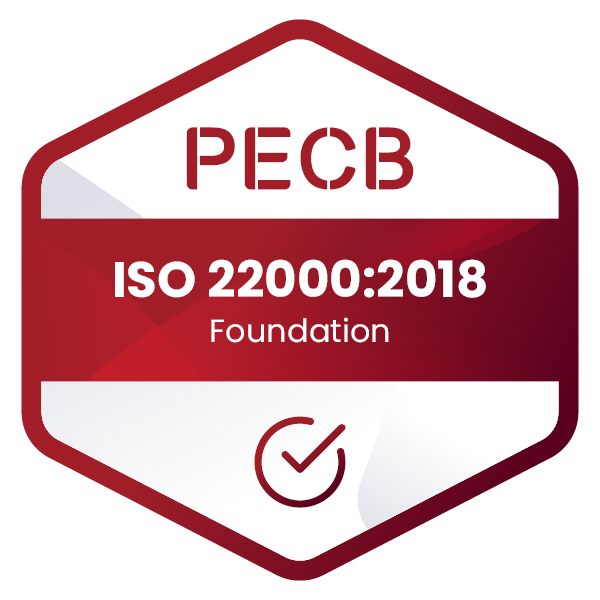Course Overview
The PECB Certified ISO 22000 Foundation training course presents the basic information on the concepts of food safety management and an overview of the ISO 22000 requirements. By participating in this training course, you will be able to understand the different aspects of an FSMS based on ISO 22000, including the top management commitment, food safety policy, work environment, operational controls, PRPs, traceability, hazard controls, performance evaluations, and continual improvement.
The successful completion of the training course is followed by an exam. If you pass the exam, you can apply for the “PECB Certificate Holder in ISO 22000 Foundation” certificate. An internationally recognized “PECB ISO 22000 Foundation” certificate validates your professional capabilities and demonstrates your ability to participate in an implementation project of an FSMS based on ISO 22000.
Learning objectives
This training course enables you to:
- Get acquainted with the fundamental concepts and principles of ISO 22000
- Understand the requirements of ISO 22000 for a food safety management system (FSMS)
- Understand the basic approaches, methods, and practices that can be used for the implementation of FSMS
Educational approach
The training course is participant-centered and contains:
- Lecture sessions illustrated with graphics, examples, and discussions
- Interactions between participants using questions and suggestions
- Quizzes as a simulation and preview of the certificate exam
Prerequisites
There are no prerequisites to participate in this training course.
Target Audiance
- Managers or consultants involved in food safety management
- Individuals wishing to get acquainted with the ISO 22000 requirements for a food safety management system
- Personnel responsible for maintaining conformity to the ISO 22000 requirements in an organization
- FSMS implementation team members
- Individuals wishing to pursue a career in food safety management



 4.8
4.8